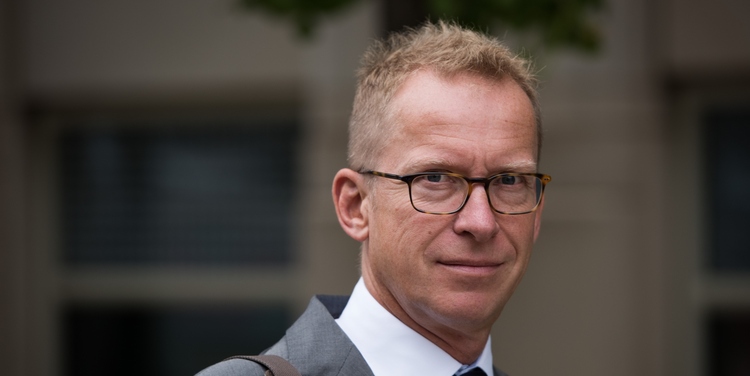Banker held guilty of fraud
October 24, 2017 | Expert Insights

A former HSBC executive has been held guilty of defrauding Cairn Energy, an energy firm in a $3.5bn currency trade.
Background
HSBC Holdings plc is a British multinational banking and financial services holding company. It was founded in 1865 and is the world's seventh largest bank by total assets. The bank was founded by Sir Thomas Sutherland. Its revenue in 2016 was $47.96 billion.
Most famous fraud cases in history:
The Sale of the Roman Empire 193 A.D: A Praetorian Guard during the unrest in the Roman Empire, the killed the current emperor and offered the empire to the highest bidder. The "winner" who was called Julianus paid 250 gold pieces for every member of the army. It is comparable to $1 billion in today's money. It is one of the earliest examples of financial fraud as the guards couldn’t sell the Roman Empire.
The Wright case (1904): James Whitaker Wright was a company promoter and swindler, who committed suicide at the Royal Courts of Justice in London immediately following his conviction for fraud.
The Ponzi Scheme (1920): This is one of the most famous fraud cases. In 1920, Charles Ponzi purchased postal coupons at a discount, shipped them abroad and sold them for full price. He then exaggerated the financial benefits by claiming he saw profits of 50% in 45 days. Thousands rushed to invest in his scheme, which turned out to be a house of cards. His investors lost nearly $10 million.
ZZZ Best (1986): Barry Jay Minkow he founded ZZZZ Best (pronounced "Zee Best"), which appeared to be an immensely successful carpet-cleaning and restoration company. However, it was actually a front to attract investment for a massive Ponzi scheme.
Enron scandal (2001): The Enron Corporation 22,000 employees and claimed revenues of nearly $101 billion in the year 2000. In 2001, details came to light that these finances were entirely made up fiction. In addition to being the largest bankruptcy reorganization in American history at that time, Enron was cited as the biggest audit failure
Bernie Maddoff (2008): Maddoff was a former broker and financier. He also operated a Ponzi scheme that is considered the largest financial fraud in U.S. history. Prosecutors estimated the size of the fraud to be $64.8 billion, based on the amounts in the accounts of Madoff's 4,800 clients as of November 30, 2008.
Analysis
Mark Johnson, used to be HSBC's head of global cash foreign exchange trading. He stood accused of having exploited confidential information from Cairn Energy in 2011. According to prosecutors, he resorted to front-running the oil and gas firm in the currency markets. In total, his scheme reportedly made the bank around $8 million. Cairn Energy had hired HSBC to convert the proceeds of an asset sale from dollars to sterling. Johnson was able to tip off his colleagues using code words and phrases such as “my watch is off”. Johnson was arrested while on a visit to New York in 2016 as he was just boarding a plane.
The trial for the case lasted for three weeks. Johnson was found guilty of defrauding the clent in a $3.5 billion currency deal. He will be sentenced at a later date. His defense team had noted that “pre-hedging” was standard practice in the industry and that Cairn got a “fair” price.
Andrew Vale, assistant director in charge of the FBI’s Washington Field Office, said: “We are working vigorously to ensure integrity is upheld in financial services industries. We will continue to work with our law enforcement partners to investigate and prosecute those who engage in illegal business practices.”
"This sends a signal to traders and banks that this type of behavior is absolutely inappropriate and will be pursued by the government," said Michael Weinstein, a former Justice Department attorney, quoted by Bloomberg.
Johnson is the first banker to be tried in relation to currency rigging. In 2015, banks (Citicorp, JPMorgan Chase & Co., Barclays PLC, The Royal Bank of Scotland plc and UBS AG) admitted to having manipulated foreign currency markets.
HSBC, which was not charged in this case, has not publicly commented. In September, the US Federal Reserve fined the bank $175m over reportedly "unsound" practices in its foreign exchange business.
Assessment
Our assessment is that this verdict will set a precedent for future fraud cases involving financial institutions. US’ Department of Justice is signaling that the nation would take every effort to investigate and prosecute financial crimes.








Comments